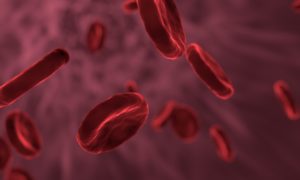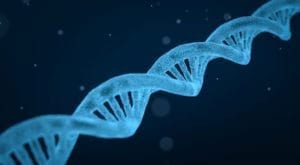Pyruvate Kinase Deficiency (PKD)
What is PK deficiency?
Pyruvate kinase (PK) deficiency (PKD) is a rare disorder that is characterized by hemolytic anemia – this occurs when the red blood cells die too early and leave too few left in the bloodstream. In clinical practice, the incidence of PKD is around one of every 1,000,000 people, although the true number is unknown due to misdiagnoses or patients going undiagnosed.
What are the symptoms of PK deficiency?
Symptoms vary greatly between affected individuals; some see severe, life-threatening effects from birth while others experience mild symptoms. Despite this variation, the major symptom is chronic hemolytic anemia.
In some, the first symptom may appear before birth: fetal hydrops (fluid buildup within the fetus’ tissue and organs). Newborns may experience anemia, jaundice, and kernicterus.
Symptoms present in children and adults may include:
- Anemia
- This causes dizziness, weakness, fatigue, pale skin, cardiac symptoms, headaches, the need for more sleep, irritability, difficulty breathing, shortness of breath, lightheadedness, and tiredness
- Gallstones
- Enlarged spleen
- Iron overload
Hemolytic episodes may also occur when one encounters a stressor (most commonly an infection, although pregnancy is another), and they cause symptoms to worsen.
Other possible complications include skin ulcers, weakened bones, pulmonary hypertension, and blood cell production that occurs outside of the bone marrow.
What causes PK deficiency?
A mutated PKLR gene causes PKD, and it is inherited in an autosomal recessive pattern. This altered gene results in a deficiency of the pyruvate kinase enzyme, which then results in a lack of adenosine triphosphate (ATP). This then leads to abnormal red blood cells with shorter life spans, and then hemolytic anemia.
How is PK deficiency diagnosed?
Doctors will perform a clinical evaluation, look for the characteristic symptoms of PKD, review patient and family history, and utilize specialized tests. These are lab tests, which work to find out whether a patient has hemolytic anemia. Molecular genetic testing may also be used to diagnose PKD.
What are the treatments for PK deficiency?
The only cure for PKD is an allogeneic hematopoietic stem cell transplant (HSCT), and it is reserved for severe cases that present a significant disease burden. In other cases, treatment is symptomatic. Most patients require blood transfusions, although frequency varies widely between patients.
Where can I find out more about PK deficiency?
Pyruvate Kinase Deficiency Articles


PK Deficiency Treatment Called Pyrukynd is Now FDA Approved





